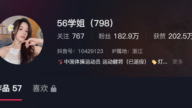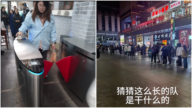【新唐人2014年07月08日讯】今年5月,中国大陆房价出现了两年来的首跌,这让房地产行业内越来越多的人担心﹕中国楼市会不会崩盘。事实上,这种担心越来越成为了现实。最新的统计资料显示,今年上半年,一线城市住宅成交量暴跌了三到四成,越来越多的地方政府不得不暗中放松限购政策来救市。请看报导。
亚太地区最大的地产代理机构“中原地产”,据它的资料显示,截至6月26号,北京今年新建住宅合计签约22782套,较去年同期下滑48.77%,签约套数和签约面积都创下近9年来同期的最低值,总成交额也比去年同期下降了了38%。
与此同时,北京期房住宅和现房住宅“库存”,合计达到了80844套,创下近18个月的新高。
深圳市商品住宅累计成交面积和套数,同比去年上半年分别下降40.28%、42.09%;而上海新建商品住宅销售,同比去年上半年也大跌31.2%。另外,广州今年上半年全市11区一手住宅成交面积,同比去年下跌了30.4%。
美国南卡罗莱纳大学艾肯商学院教授谢田:“对于购房者,现在应该观望。我觉得现在绝对不是购买的时机,因为没有人愿意买一个即将大幅度跌价的一个房地产。”
美国“南卡罗莱纳大学艾肯商学院”教授谢田认为,中国现在房地产的一切表现,就是泡沫破灭的前兆。因为中国的房地产泡沫,以前被中共政府和房地产商联合起来,吹得太大了,泡沫破灭只是时间问题。
其实,现在很多房地产商遇到了困境。
今年4月份,浙江省奉化市房地产开发商“浙江兴润置业”(Zhejiang Xinrun Real Estate Co.),欠下35亿元巨额债务,因资不抵债而破产。而浙江杭州市的“中都集团”(Zhongdou Group),也在6月份因欠资20亿,不得不倒闭。
实际上,中国的房价下降是越来越快。
《中国指数研究院》日前发布的“6月份百城房价指数”显示,6月份房价环比上月下跌0.5%,而“5月百城房价”环比下降0.2%。杭州在6月份一个月内房价下跌达到惊人的2.06%。
中国房地产咨询机构——“克而瑞”(CRIC)预测,中国楼市会出现更多的降价潮。
美国《华尔街日报》指出,随着中国房地产市场继续下行,将会出现五大输家,分别是房主、房地产开发商、银行、影子银行和地方政府。
《华尔街日报》认为,随着房价下跌,很多房主的贷款比买新房还要贵。而严重依赖土地出让金的地方政府,也会受到很大打击。
根据今年初中共国家审计署公布的各地政府性债务审计结果,今年不但是地方政府还债的高峰期,而且很多地方政府性偿还债务仍然主要依赖于土地出让金。
例如,上海“新世纪资信评估投资服务有限公司”透露,广东省收入有超过一半来自土地转让金,上海每年土地出让金大约为1000多亿人民币。
鉴于当前中国房地产的局势,很多地方政府纷纷挑战中央的“限购令”。
最近,武汉市房管局将放宽本地居民第三套房、和外地人购买第二套房的有关政策,呼和浩特市则正式发文宣布取消限购。北京的限价政策也是悄然松动。
据不完全统计,今年以来,杭州、天津、南京、北海、芜湖、沈阳等地,暗中松绑了限购政策,长沙、海口、贵阳等20多个城市则通过放宽落户条件等方式“曲线救市”。
谢田:“地方政府现在仍然在为了尽快地取得自己的利益、权贵阶层的利益,他们还在拚命的趁这个机会,来继续鼓吹、增大中国房地产的泡沫。”
谢田指出,中国没有真正的房地产市场,因为中共从来没有放弃对土地的控制,老百姓不能得到土地的产权和房子的产权。所以,中国的房地产市场只是一个虚假的、套利的、充满了陷阱的、和骗老百姓钱的场所而已。
采访/易如 编辑/宋风 后制/李智远
Real Estate Panic Arrived, First-Tier Cities Slump 40%
This May, housing prices in China dropped for the first time
in two years, which makes more and more people
in real estate worry: Will China’s property market collapse?
In fact, this fear is becoming a reality.
The latest statistics show that for first half of this year,
the trade volume of residential growth in first-tier cities
dropped 30 percent to 40 percent, forcing more and more
local governments to secretly lighten the buying restriction
policy to rescue the market.
The largest property agency in the Asia-Pacific region,
Centaline Property Agency, has released data saying Beijing’s
total new residential contracts reached nearly 23,000 units
by June 26 this year, which is nearly 49 percent less than 2013.
The number of contracts and contracted area
reached their lowest value in the past 9 years;
the total turnover rate fell 38 percent compared to last year.
Meanwhile, Beijing forward delivery housing and existing
housing “Inventory" reached almost 81,000 units,
a new peak in the past 18 months.
Accumulated turnover of Shenzhen commercial residential
areas and the number of units dropped by 40 percent and
42 percent respectively compared to the first half of last year;
Shanghai new commercial housing sales fell 31 percent.
In addition, eleven districts of Guangzhou’s first hand
residential sales area decreased 30 percent over last year’s.
Frank Tian Xie, professor at University of South Carolina,
Aiken School of Business: “Buyers should now wait and see.
I think now is definitely not the time to buy.
No one wants to buy property that will soon lose it’s value."
Xie says all China’s real estate manifestations are
the precursor of a bubble burst.
The combination of the Chinese Communist Party
and real estate business has blown China’s real estate bubble
too big, and it’s just a matter of time before it bursts.
In fact, many real estate enterprises
have encountered difficulties.
This April, real estate enterprise Zhejiang Xinrun Real Estate
went bankrupt when it couldn’t pay a debt of $564 million.
Zhongdou Group also had to close down this June
due to being unable to pay a debt of $300 million.
In fact, China’s housing prices are declining faster and faster.
The China Index Research Institute recently released
its “monthly 100 city price index,"
which says June housing prices fell 0.5 percent since May,
while prices in May fell 0.2 percent since April.
Hangzhou housing prices decreased a full 2 percent
within the month of June.
The China Real Estate Information Corporation (CRIC) noted
that China’s property market will see further price cuts.
Wall Street Journal says that the persistent decline
of China’s real estate market will result in five kinds of losers:
House owners, real estate developers, banks,
shadow banks and local governments.
Wall Street Journal says that, along with falling housing prices,
the loans of many home owners are higher than the
price of a new house.
Local governments, which rely heavily on land premiums,
will suffer a heavy blow.
According to an audit of local government debt announced
by China’s National Audit Office, this year is not only seeing
the peak of local governments’ paying back of loans,
but many local governments also still rely
mainly on land premiums to pay back debts.
For example, Shanghai Brilliance Credit Rating & Investors
Service revealed that over half of Guangdong province’s
revenue comes from land transfer payments.
Shanghai’s annual land transfer payments
are around $16 billion.
Due to the current real estate situation, many local
governments have challenged the central government’s
policy of “purchase restriction".
Wuhan Housing Authority will lighten the purchase policy
on local residents buying a third suite, and foreigners buying
a second suite; Hohhot issued a formal announcement to
cancel the purchase restriction; Beijing’s price restriction
policy is also quietly loosening.
According to incomplete statistics, since this year, Hangzhou,
Tianjin, Nanjing, and other provinces, secretly loosened up
on the purchase restriction policy.
Meanwhile, more than 20 cities have been trying to save
themselves by lightening settlement conditions.
Frank Tian Xie: “Local governments continue to promote
and enlarge China’s real estate bubble,
using this opportunity to achieve their own interests
and the interests of the elite class as soon as possible."
Xie says China has no actual real estate market,
because the Chinese Communist Party
has never given up control over the land.
The ordinary people cannot get land or home ownership.
Thus, China’s real estate market is only a false arbitrage,
full of traps, and is just a place to cheat people’s money.
Interview/YiRu Edit/SongFeng Post-Production/Lizhiyuan




























